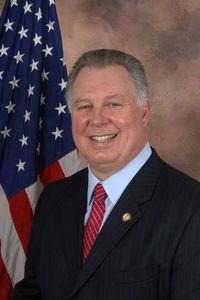John Shepard Wiley, Jr.
John Shepard Wiley Jr. has served as an influential appeals court judge in California for over 15 years. After being appointed to the Superior Court in 2002, he was elevated to the Second District Court of Appeal in 2018. Throughout his judicial career, Wiley has shaped the law through thoughtful rulings guided by his commitment to justice, fairness, and public service.
Early Life and Pre-Judicial Legal Career
John Wiley was born and raised in Los Angeles, California. He graduated from University of California Los Angeles (UCLA) and later Southwestern Law School. Before becoming a judge, Wiley worked as an attorney at the law firm of Parker, Milliken, Clark, O’Hara & Samuelian. He also served a term as President of the Mexican American Bar Association. In addition, Wiley worked as an adjunct professor at his alma mater Southwestern Law School.
Appointment to Superior Court in 2002
In August 2002, Wiley was appointed to the Los Angeles County Superior Court by Governor Gray Davis. During his 16 years on the superior court bench, Wiley earned a reputation for thoughtfulness, thoroughness, and fairness. He handled a variety of cases including criminal, civil, family law, and juvenile delinquency matters. Wiley was re-elected by voters to the superior court in 2010 and 2016.
Presided Over High-Profile Cases
While on the superior court, Wiley presided over several high-profile cases that drew significant public attention. In 2009, he oversaw the trial of music producer Phil Spector who was accused of murdering actress Lana Clarkson. Wiley handled the case judiciously, and Spector was ultimately convicted and sentenced to prison.
Valued Role of Superior Court Judges
As a superior court judge, Wiley valued the important role trial judges play in making just and impartial decisions that impact people’s lives. He become very involved in judicial education programs for new judges. Wiley also worked to expand access to justice as a board member of the California Equal Access Fund.
Elevation to the Court of Appeal in 2018
In November 2018, Wiley was appointed by Governor Jerry Brown to serve as an associate justice on the California Second District Court of Appeal, Division Eight. The Commission on Judicial Appointments unanimously confirmed him. In this role, Wiley hears appeals from lower courts on decisions in civil, criminal, and administrative law cases. His term runs through January 2027.
Won Retention Election in 2022
To remain on the Court of Appeal, Wiley had to stand for retention in the November 2022 election. He won comfortably earning another term. Wiley’s retention demonstrated the public’s confidence in his abilities as an appellate judge.
Collegial Approach on the Bench
As an appeals court justice, Wiley is praised for his collegial manner and for actively engaging with his colleagues during oral arguments and case conferences. While he takes his job seriously, Wiley maintains an affable demeanor.
Key Appellate Decisions and Opinions
Throughout his time on the Court of Appeal, Justice Wiley has shaped California law through his written opinions in important cases. Here are some highlights of his appellate rulings:
Fines and Fees in People v. Dueñas
In a landmark 2019 decision, Wiley ruled that imposing certain fines and fees on an indigent defendant was unlawful. This heightened attention on the criminal justice system’s impact on poor people.
Right to Refuse Treatment in Conservatorship of O.B.
Wiley affirmed a patient’s right to refuse antipsychotic medication under certain conditions during a mental health conservatorship. This protected patient autonomy and privacy interests.
Juvenile Justice Reform in SB 1391 Case
In a case concerning a new California law, Wiley upheld the prohibition on trying juveniles under 16 in adult court. This affirmed an effort to treat children differently in the justice system.
Health Care Dispute in AltaMed Case
In a dispute over a liver transplant center, Wiley deferred to the state health department’s role in evaluating regulatory compliance. This impacted healthcare policy.
Judicial Philosophy and Reputation
Over his many years on the bench, Wiley has developed a reputation for fairness, thoroughness, and clarity. Here are some of the ways people describe his judicial philosophy:
Careful and Evenhanded Approach
Wiley is known for his careful, thoughtful approach to weighing legal arguments. He treats all parties evenhandedly and does not prejudge cases.
Values Role of Appellate Guidance
He understands appellate courts’ vital role in providing guidance on the law through written opinions. Wiley aims to explain his rulings clearly.
Believes in Clear Opinion Writing
Wiley writes opinions that are clear and understandable for the public, parties, and legal community. He works to make complex legal concepts graspable.
Pragmatic Perspective
While knowledgeable on legal doctrine, Wiley maintains a pragmatic perspective focused on how the law impacts real people and problems.
Family Life and Interests Outside the Courthouse
Outside his professional work on the appellate bench, Wiley has been married for over 30 years and has two adult sons and a grandchild. He is actively involved in his community. Some of his personal interests and activities include:
- Teaching Sunday school at his local church for over 25 years
- Serving on nonprofit boards focused on youth, education, and mentoring
- Staying physically active by hiking on weekends
- Reading fiction and biographies in his spare time
- Traveling with his wife including trips to Europe, Asia, and Latin America
Wiley aims for balance between his judicial responsibilities and family life. He strives to give back through volunteer work.
Conclusion: Legacy of Justice Wiley
Over his distinguished career spanning two decades on the California bench, Justice John Shepard Wiley Jr. has made a significant impact through his reasoned rulings, commitment to public service, and mentorship. On both the superior court and appellate court, Wiley has shaped the law in critical areas while providing fair and impartial justice. As his tenure continues through 2027 and likely beyond, Wiley will continue to be a thoughtful voice serving the people of California.
Key Takeaways
- Appointed by two governors, he has served since 2002 on superior court and appeals court
- Wiley has built a reputation as a careful, pragmatic, collegial, and clear judge
- He has written influential opinions on criminal justice, healthcare, and juvenile law
- Off the bench, Wiley is committed to his family, faith, and giving back through nonprofit work
- Wiley’s legacy will be one of justice, integrity, and public service on the California bench
FAQ
Who is John Shepard Wiley Jr.?
John Shepard Wiley Jr. is a Justice on the California Second District Court of Appeal, Division Eight. He was appointed in 2018 by former Governor Jerry Brown. Prior to that, Wiley served as a judge on the Los Angeles County Superior Court from 2002 to 2018.
What are some notable rulings Wiley has made?
Some of Wiley’s most significant appellate rulings have dealt with criminal justice reform, healthcare policy, and juvenile justice. Key cases include People v. Dueñas on fines and fees, Conservatorship of O.B. on the right to refuse treatment, and a case upholding California’s prohibition on trying juveniles under 16 in adult court.
What is Wiley’s judicial philosophy known for?
Wiley has a reputation for being careful, thoughtful, pragmatic, and evenhanded. He values writing clear appellate opinions that provide guidance, and he aims to make complex legal concepts understandable. Wiley is also known for his collegial approach.
What does Wiley do in his personal time?
Outside his work as a judge, Wiley is active in his local church and nonprofit groups. His hobbies include hiking, reading, traveling with his wife, and spending time with his two adult sons and grandchild.
How long can Wiley serve on the appeals court?
Wiley’s current term runs through January 2027. Now that he has won a retention election in 2022, Wiley can serve additional terms on the appeals court as long as he continues to win retention elections for subsequent terms.








